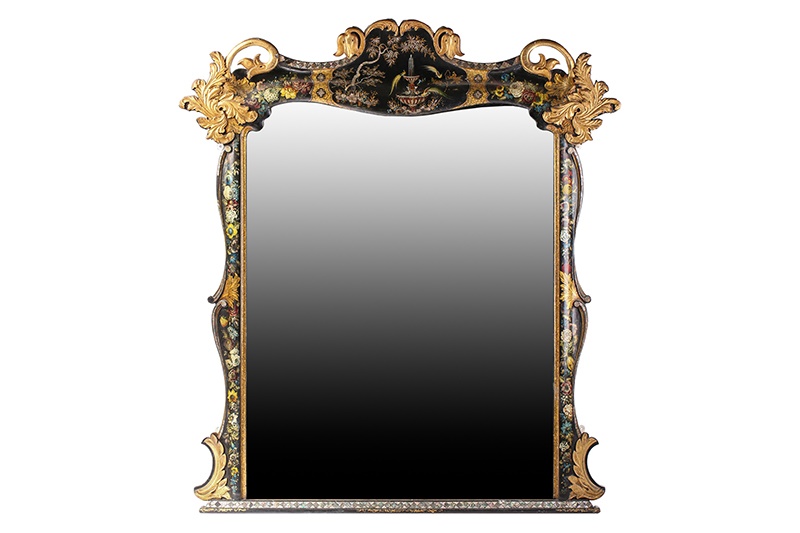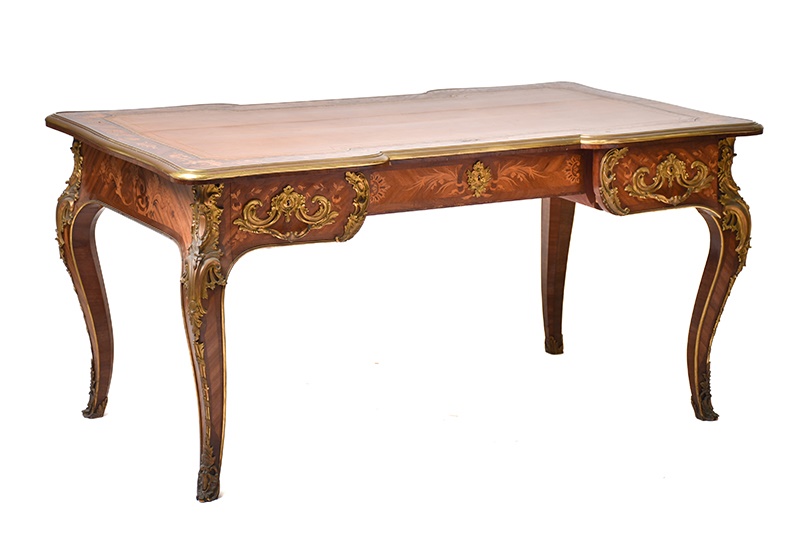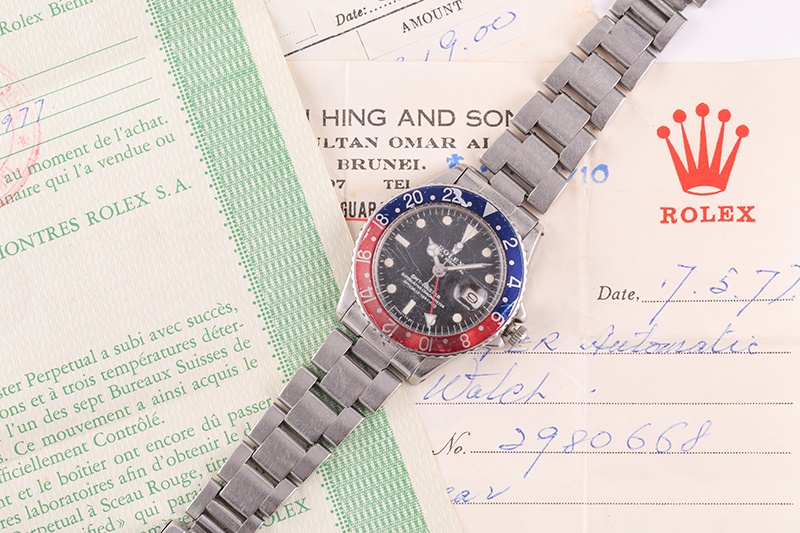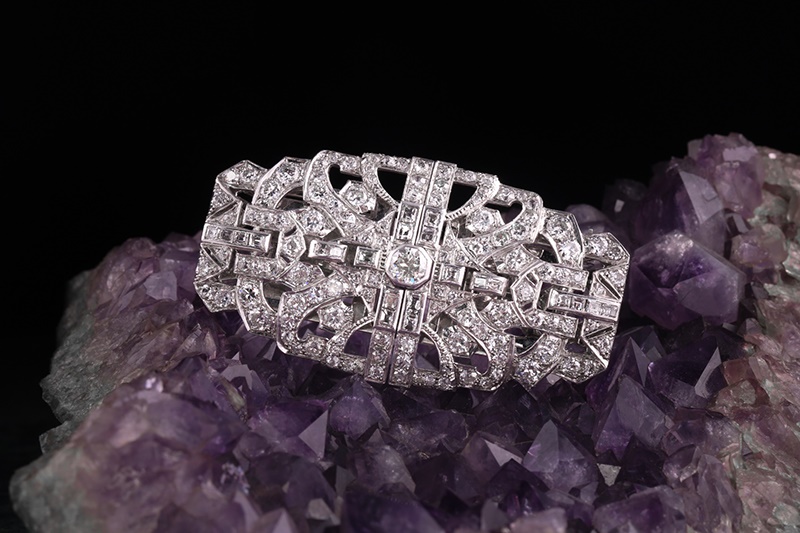Antique vs Vintage
Exploring the Distinctive Charms of Bygone Eras
16/05/2023
Antique and vintage are two terms often erroneously used interchangeably, but there are distinct differences between the two, most notably… age.
Within the industry, items that are at least 100 years old are defined as antiques, whilst the requisite guidance on vintage items is a bit more loosely established as items at least 30 – 40 years old, but less than 100 years old. As the word vintage literally means “of age”, labelling an item as such can sometimes be subjective.
In addition, and worthy of note, is the fact that items produced in the last 20 years are increasingly being termed ‘Retro’, typically replicating styles from bygone eras - they are generally less expensive than their antique or vintage counterparts.
A 1972 Rolex GMT Master 'Pepsi' ref. 1675 stainless steel automatic wristwatch
When it comes to dating a piece, it is worth noting the most prominent style eras over the last 200 years or so, some of which overlap:
1837-1901: Victorian
1845-1870: Rococo Revival
1950-1914: Naturalist/Aesthetic
1855-1890: Neo-Greek/Eastlake
1895-1915: Arts and Crafts
1896-1914: Art Nouveau
1920-1935: Art Deco
An antique can be any item of art, furniture, jewellery, ceramic, accessory, or watch provided they are at least 100 years old. These items are regularly considered accents to the home or lifestyle rather than your everyday items. As many tend to invest in antiques, these items are often displayed in a position of pride. You wouldn’t wear your Victorian diamond necklace every day, (as much as you might like to), nor would you position your Rococo Revival sofa in a space where it is likely to be sat on daily or exposed to direct sunlight. That doesn’t of course mean that these items are not fit for use, but rather that more care needs to be taken.
 An early Victorian Scottish, black lacquer and Chinoiserie overmantle mirror
An early Victorian Scottish, black lacquer and Chinoiserie overmantle mirror
Vintage items tend to be more accessible than antiques, but still have a great deal of appeal. Items in this genre should speak of the era to which it belongs, in other words, the design should be representative or recognisable. As any collector is likely to fall into this category themselves, being younger than 100 years old, it is fair to say that a certain amount of nostalgia accompanies these pieces. Popular items include trading cards, objects of vertu, concert and music memorabilia, comics and books, toys and games, watches, ceramics, jewellery, and clothing to name a few.
An Art Deco diamond lapel brooch
Discerning collectors will be able to identify different styles, but for the novice – attending viewings at your local auction house and speaking to their experts can help you along the way. By scrutinising the intended use of these pieces, chances are that this information alone can help determine which era an item will belong to. For example, a military issue Rolex would have been supplied during one of the two world wars, whereas a silver candlestick with snuffer would have been used in an era where electricity was either not invented or not readily available.
 A French Louis XV style rococo marquetry and Kingwood bureau plat
A French Louis XV style rococo marquetry and Kingwood bureau plat
Although age alone doesn’t equate to value, other factors to consider are the condition, quality, and relative rarity. A vintage Art Deco cigar box could be worth far more than a similar casket from an earlier period, purely due to the design and limited availability.
Whether you are looking for an antique or vintage item, it is important to do your research before making a purchase. Knowing the age of the item, its condition and any relevant history can help you make an informed decision when it comes to collecting antiques or vintage pieces. Both categories are undeniably popular amongst collectors today.
read more:
How Much Are My Antiques Worth?
Do you have any vintage or antique items that you are considering selling?
Or do you have any art, antiques, or collectables that you would like valued?
Please get in touch today, our expert Valuers would love to hear from you:

